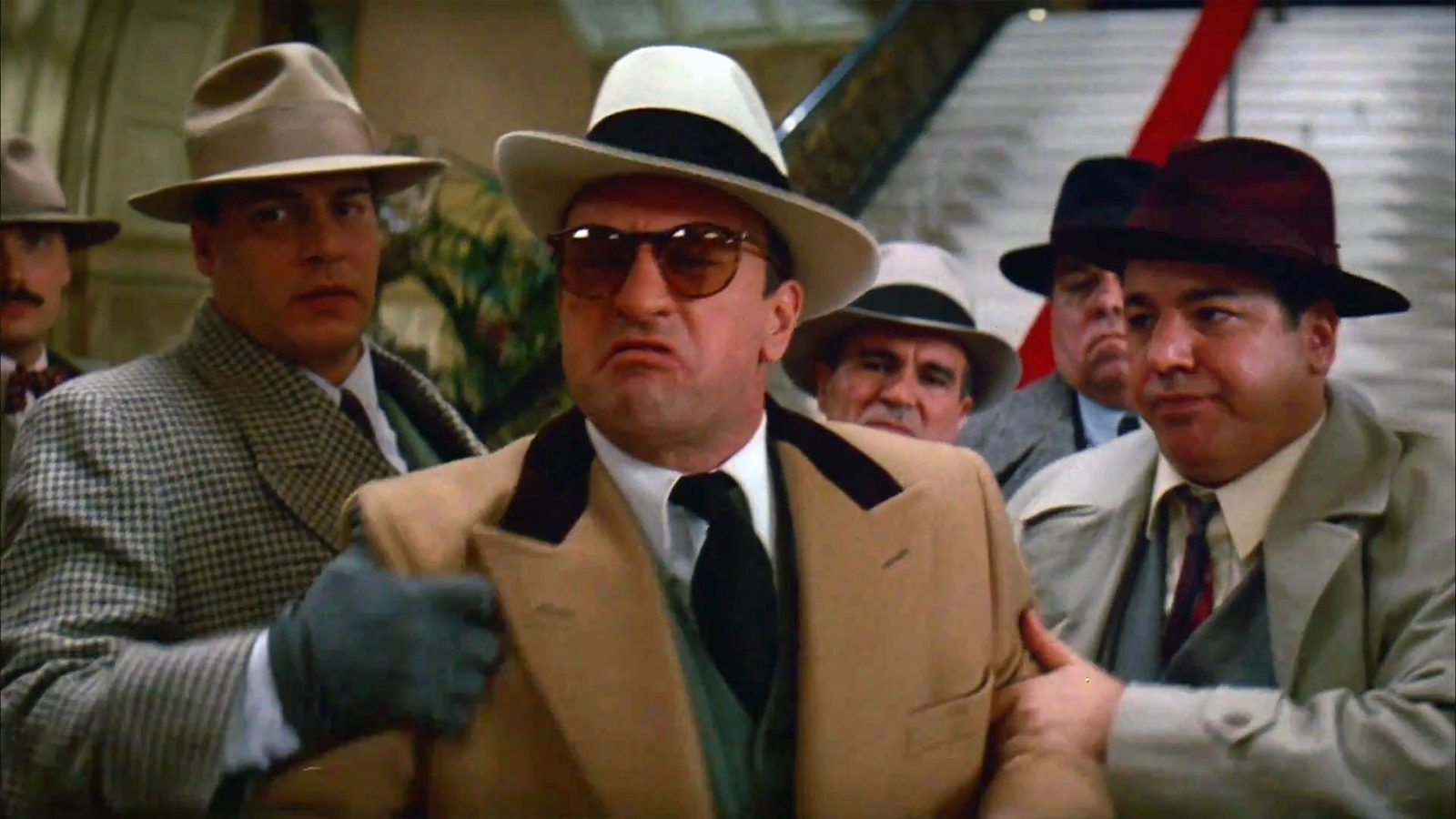In the mid-’80s, Brian De Palma would not have seemed the obvious choice to bring the TV show The Untouchables (1959–1963) to the big screen. A stolid, albeit occasionally rousing, crime drama based on Eliot Ness’s memoir of his time as a Prohibition agent in Chicago, the series was ripe for the multiplex, but De Palma had become known for more intimate character exercises like Blow Out (1981), Body Double (1984). Even his ultraviolent epic Scarface (1983) was of a different breed than this ensemble-cast action material. The only proper mob story that the director had even brought to the screen at the time was his 1986 buddy comedy, Wise Guys, a critical and commercial failure. Paramount undoubtedly sought to rekindle the success that they had with The Godfather (1972) and The Godfather: Part II (1974) in the prior decade, though they might have tapped Francis Ford Coppola again, or even Spielberg. In any case, what they got with De Palma is an often elegant throwback to the Production Code gangster films of the ’40s and ’50s punctuated by the graphic violence of the ’80s and the director’s signature tongue-in-cheek humor. In other words, this wasn’t your grandfather’s The Untouchables, even when it was.
The two things that immediately separate The Untouchables from both its source and its obvious comparisons, particularly Coppola’s two Godfather films, are its score and its language. The music, by the Italian composer Ennio Morricone, is fast and bombastic, omnipresent rolling thunder that propels its numerous action sequences but also scenes where little happens, imbuing the whole ordeal with a palpable anxiety that makes it feel more violent than it actually is. The script, courtesy of the controversial playwright David Mamet, has a rhythm of its own and never shies away from awkward humor, including in Robert De Niro’s now-iconic Al Capone “enthusiasms” monologue. Mamet irrefutably turns the material of his sources toward something much more grandiose; exaggerating the harsh grit of true crime into something more akin to a comic book. It’s as if we are watching Brian De Palma and David Mamet’s approximation of The Avengers, played by Kevin Costner (as Ness), Sean Connery, Andy Garcia and Charles Martin Smith; each character with a particular skill to offer their crack team of crime fighters.
The plot synopsis of The Untouchables could have been written on a napkin, with the film’s two-hour runtime devoted mostly to a Ness vs. Capone grudgematch. De Palma takes any opportunity to leave the city of Chicago for the mountains and hills of America’s heartland, including a great centerpiece sequence featuring teams of men warring with tommy guns atop a bridge. As a result, The Untouchables feels like the anti-Scarface; a distinctly American, decidedly old-fashioned gangster picture with more in common with the adventure films of the 1960s than the sleazy thrills of the 1980s—though it fully embraces its R rating. This is De Palma in blockbuster mode, something we wouldn’t see again until his franchise-igniting Mission: Impossible (1996), itself an adaptation of a 1960s TV show, positing that De Palma, though arguably most well known for his thrillers, both erotic and non-, was as much a studio player as a devout iconoclast. Maybe, just maybe, it was he who was untouchable.
The Untouchables screens this evening, January 5, and on January 8, at the Museum of Modern Art as part of their Ennio Morricone retrospective.



